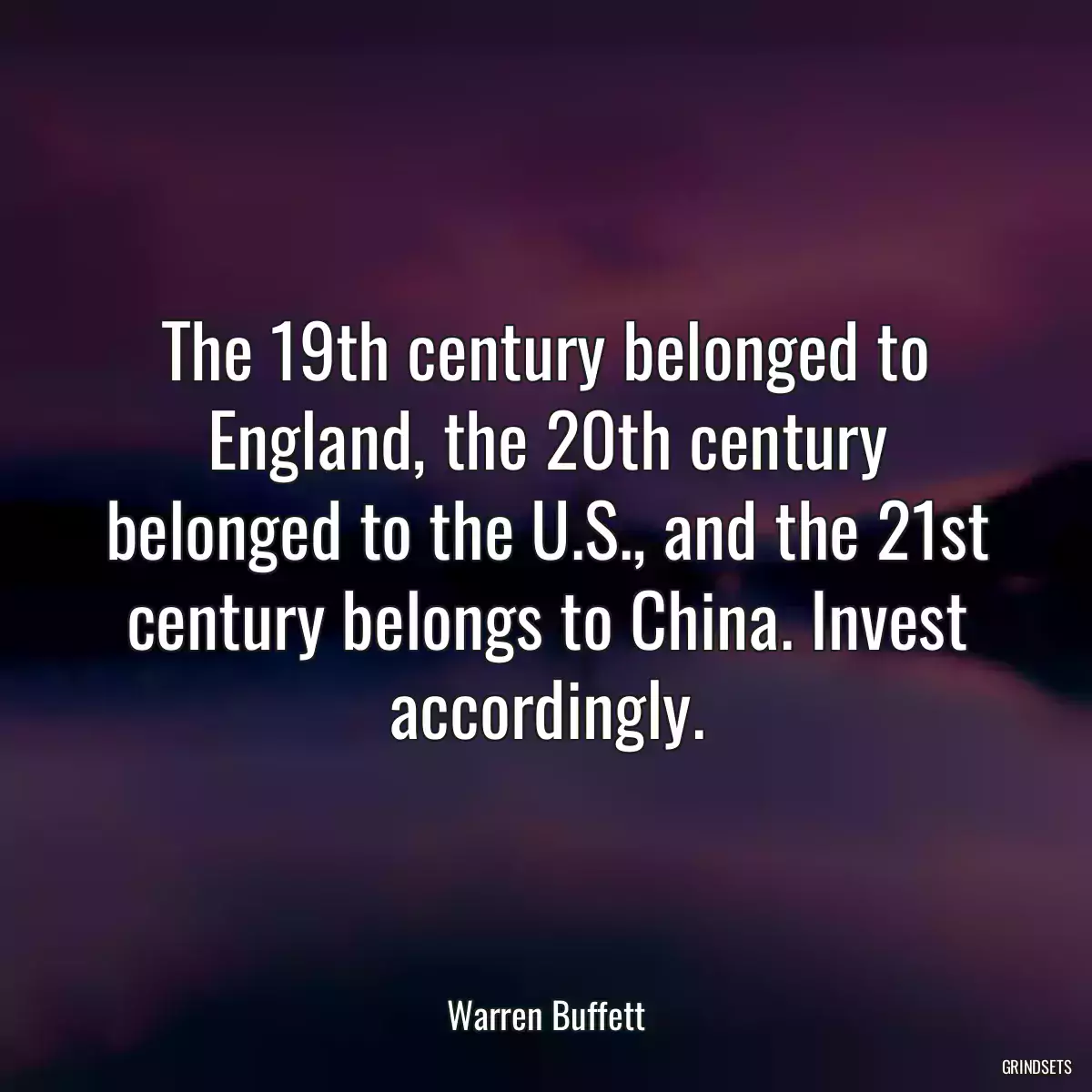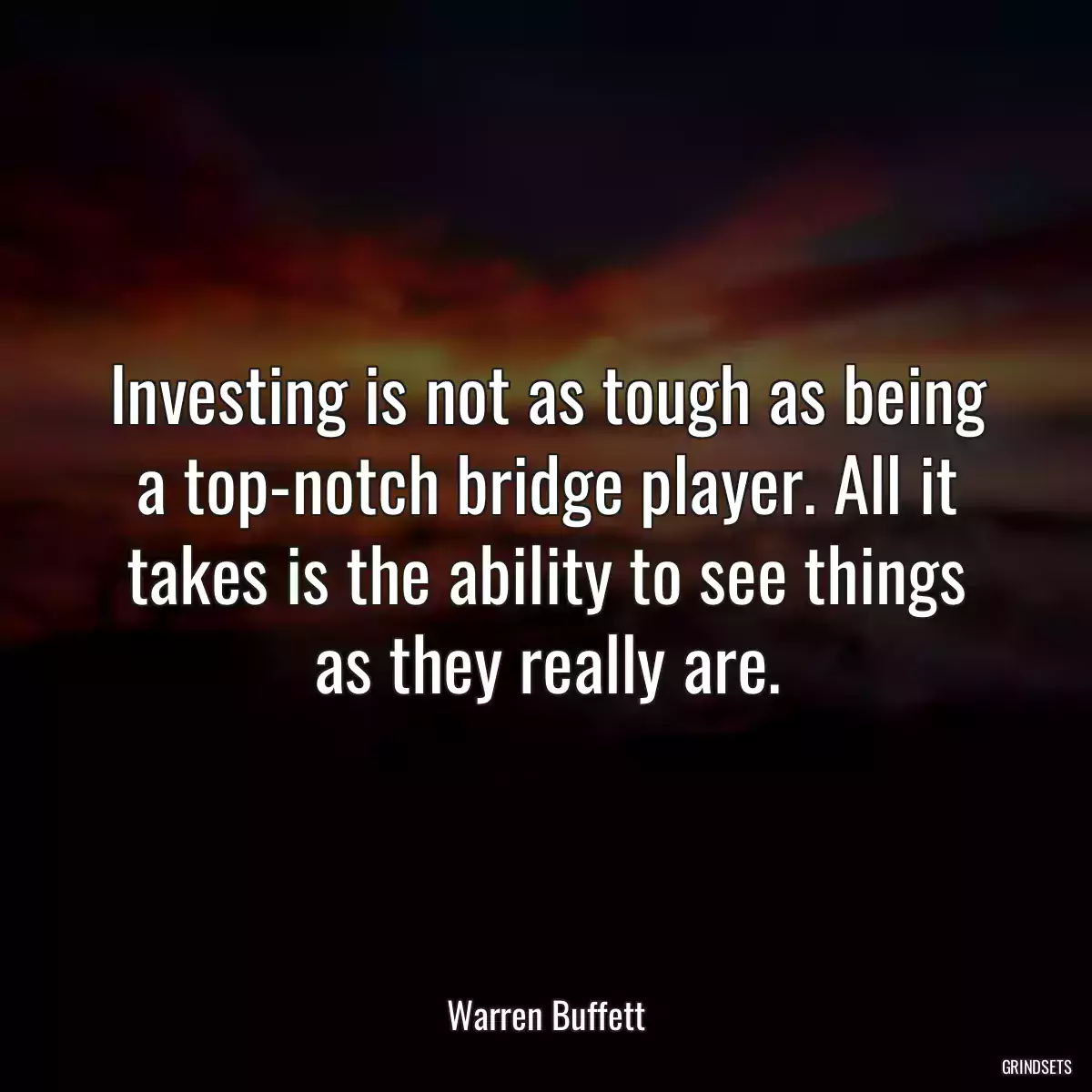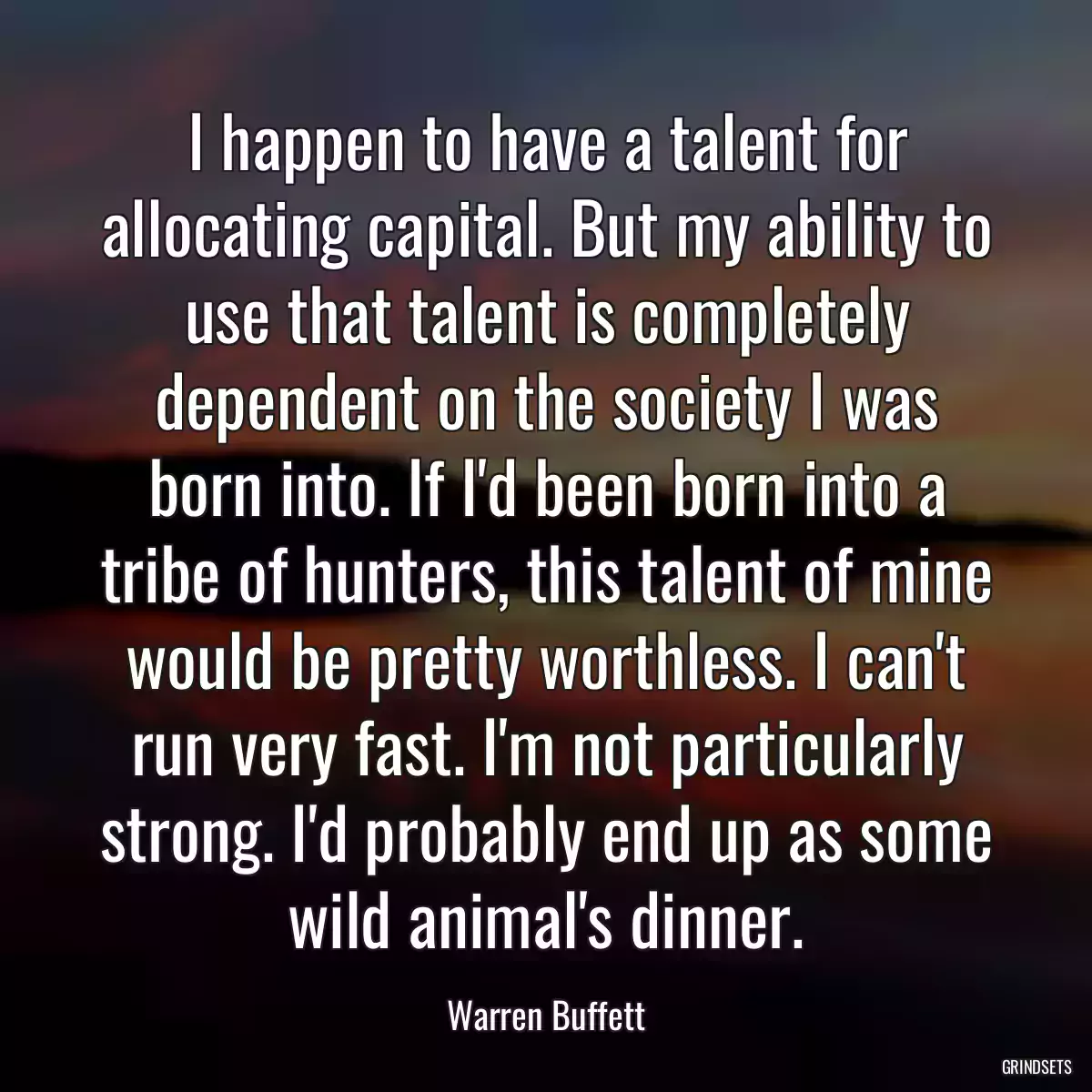
Quotes Warren Buffett
Find dozens of Warren Buffett with images to copy and share.

In the 20th century, the United States endured two world wars and other traumatic and expensive military conflicts; the Depression; a dozen or so recessions and financial panics; oil shocks; a flu epidemic; and the resignation of a disgraced president. Yet the Dow rose from 66 to 11,497.
This country is going - be living better ten years from now than it is now. It will be living better in 20 years from now than ten years from now. The ingredients that made this country, you know, the miracle of the world - I mean we had a seven for one improvement in the average American standard of living in the 20th century.
We have embraced the 21st century by entering such cutting-edge industries as brick, carpet, insulation and paint. Try to control your excitement.
You may also like
There are three kinds of people: 1. Innovators. 2. Imitators. 3. Idiots.
During inflation, Goodwill is the gift that keeps on giving.
I am out of step with present conditions. When the game is no longer played your way, it is only human to say the new approach is all wrong, bound to lead to trouble, and so on. On one point, however, I am clear. I will not abandon a previous approach whose logic I understand ( although I find it difficult to apply ) even though it may mean foregoing large, and apparently easy, profits to embrace an approach which I don't fully understand, have not practiced successfully, and which possibly could lead to substantial permanent loss of capital.
Who would think of buying or selling a private business because of someone's guess on the stock market? The availability of a quotation for your business interest (stock) should always be an asset to be utilized if desired. If it gets silly enough in either direction, you take advantage of it. Its availability should never be turned into a livability whereby its periodic aberrations in turn formulate your judgements.
In that, we agreed with Andrew Carnegie, who said that huge fortunes that flow in large part from society should in large part be returned to society. In my case, the ability to allocate capital would have had little utility unless I lived in a rich, populous country in which enormous quantities of marketable securities were traded and were sometimes ridiculously mispriced. And fortunately for me, that describes the U.S. in the second half of the last century.

What an investor needs is the ability to correctly evaluate selected businesses. Note that word selected: You don't have to be an expert on every company, or even many. You only have to be able to evaluate companies within your circle of competence. The size of that circle is not very important; knowing its boundaries, however, is vital.
The value of market esoterica to the consumer of investment advice is a different story. In my opinion, investment success will not be produced by arcane formulae, computer programs or signals flashed by the price behavior of stocks and markets. Rather an investor will succeed by coupling good business judgment with an ability to insulate his thoughts and behavior from the super-contagious emotions that swirl about the marketplace.
After 25 years of buying and supervising a great variety of businesses, Charlie [Munger] and I have not learned how to solve difficult business problems. What we have learned is to avoid them. To the extent we have been successful, it is because we have concentrated on identifying one-foot hurdles that we could step over rather than because we acquired any ability to clear seven-footers.
You have no ability, if you're a financial institution and you're threatened with criminal prosecution, you have no ability to negotiate.
In my opinion, the entire field of investment management, involving hundreds of billions of dollars, would be more satisfactorily conducted if everyone had a good yardstick for measurement of ability and sensibly applied it.
I think that they hoped the private sector would come in. And the private sector tried to come in until they saw the size of the problem. I mean, from were people on that weekend that thought they'd had a solution. And then the hole kept getting bigger and bigger. And all of a sudden became apparent that 20 billion wouldn't do it and 30 billion wouldn't do it and 40 billion wouldn't do it. So it got beyond anybody's ability to certainly to do it in a short period of time.
I can do anything I want, basically, as long as it doesn't involve athletic ability, or something like that.
The ability to say no is a tremendous advantage for an investor.
You may also like

I happen to have a talent for allocating capital. But my ability to use that talent is completely dependent on the society I was born into. If I'd been born into a tribe of hunters, this talent of mine would be pretty worthless. I can't run very fast. I'm not particularly strong. I'd probably end up as some wild animal's dinner.
An investor will succeed by coupling good business judgment with an ability to insulate his thoughts and behavior from the super-contagious emotions that swirl about the marketplace.